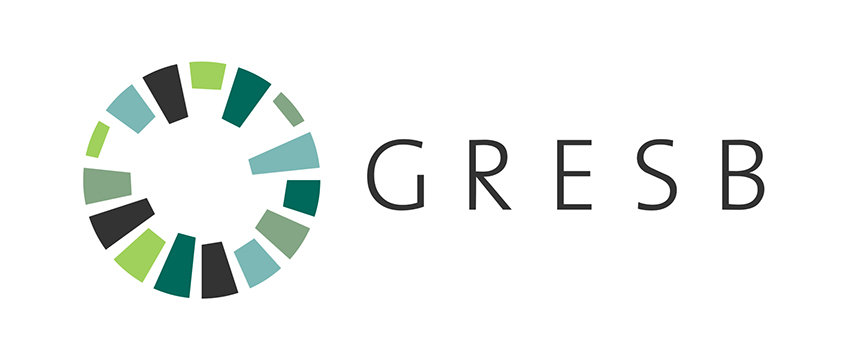It is widely known that the built environment is responsible for more than 40% of carbon emissions, presenting a significant opportunity for the real estate industry to effect change. However, it can be challenging to gauge which companies are actively addressing this issue. Hence the importance of industry-specific ESG benchmarks such as GRESB (formerly the Global Real Estate Sustainability Benchmark).
GRESB, established in 2009, provides companies with a score and peer group ranking based on their ESG performance. This information is valuable not just for investors, but for anyone wanting to identify organisations that are truly “walking the walk” when it comes to sustainability.
To stay competitive and adaptable, GRESB standards undergo annual updates that align with sustainability trends in the real estate and infrastructure sectors. These updates go through a meticulous approval process involving the GRESB Standards Committees; two groups comprised of real estate and infrastructure ESG specialists. The endorsed changes are then reviewed by the GRESB Foundation, an independent, mission-based non-profit organisation dedicated to owning, maintaining, and informing the development and operation of GRESB standards. This governance structure ensures democratic decision-making, as any employee of a GRESB member can apply to join these committees, maintaining a relevant standard driven by industry consensus.
On the horizon
Looking ahead to 2024, changes announced to GRESB standards are expected to have a significant impact on participant scoring, particularly in the realm of building certifications. A key revision centres on the introduction of validity periods and time weightings. Design and construction certifications, for instance, will gradually lose score weighting over time to reflect the growing significance of post-construction operations. Similarly, operational certifications will experience a decrease in points following their expiration. By implementing these changes, GRESB aims to continually enhance the importance of sustainable operational practices while acknowledging the shifting dynamics within the real estate industry.
Beyond 2024, future changes have already been announced for additional employee safety indicators. However, there is limited detail on further changes outside of this, other than the topics which are currently being investigated. These are building certifications, physical climate risk, diversity, equity and inclusion, embodied carbon, net zero, biodiversity, and sector specificity.
Based on the most recent updates to the standard, we expect building certifications, net zero and sector specificity to present the most likely areas of further change in the short term. However, given there are limited indicators within the current standard for embodied carbon or biodiversity, we could see further integration of these sooner to subsequent cycles, in alignment with trends observed in the real estate industry.
Benefits and perceptions
Participation in GRESB provides a wealth of benefits to its members and the wider market, particularly through insights into business operations and performance, and the competition that the scoring propagates, encouraging and accelerating sustainable development. Despite this, there are varied perceptions of GRESB among JLL’s clients and partners. Investors typically still view it as a key tool for understanding the ESG performance of real estate organisations, but it is important to note that they often aren’t participants in GRESB, and instead leverage the outcomes in their decision-making. Participation can be a resource-intensive task for members, particularly for larger organisations and those with a substantial number of funds, due to the granularity of information required. However, this represents a core value of the GRESB mission to “provide financial markets with actionable insights, ESG data and benchmarks”. Additionally, participants gain market visibility and can leverage the platform for other reporting purposes and insights themselves. This is also key to how the benchmark is scored, reflecting the value and comparability of scoring provided to participants.
Conversely, there is an acknowledgment from both investors and participants of a slight lag between industry trends and integration into GRESB, with a shared ambition to close this gap. Convergence and harmony on emerging topics take time as recognised elements must be adopted in a consistent and standardised manner, ensuring a fair playing field. Introducing themes too early and not establishing a solid and comparable scoring foundation would result in an imbalanced and unrepresentative benchmark, which would be to nobody’s benefit.
Partnership to support industry
It is crucial to remember that GRESB should be part of an organisation’s broader ESG reporting and strategy, rather than the sole focus. Treating GRESB as a mere box-ticking exercise diminishes its significance and potential impact. While it is still early in 2024, it is never too soon for both new and seasoned GRESB participants to initiate their preparations. A proactive approach includes reviewing past submissions to pinpoint areas for improvement, developing a comprehensive project plan and engaging key stakeholders to define roles and responsibilities.
The time required to request, gather, collate, prepare, review, and update submissions is often underestimated. By taking action to improve reporting processes early on, unnecessary stress and pressure can be alleviated, resulting in a smoother and more streamlined experience as the deadline approaches. For participants who require additional support, GRESB also partners with organisations that can provide a variety of insights and solutions. Our global partnership with GRESB allows us to help our clients adapt and respond effectively to sector demand.
Collaboration is key
Steven Pringle, director of member relations at GRESB, says: “GRESB recognises that addressing the complex challenges of sustainability in real estate requires a collective effort. Collaboration is crucial for advancing sustainability goals. By working together, we can leverage diverse perspectives, share best practices, and collectively shape the future of ESG benchmarks, fostering a more sustainable built environment for the benefit of all stakeholders.”
Robert Moore is senior consultant, sustainability consulting services, at JLL









